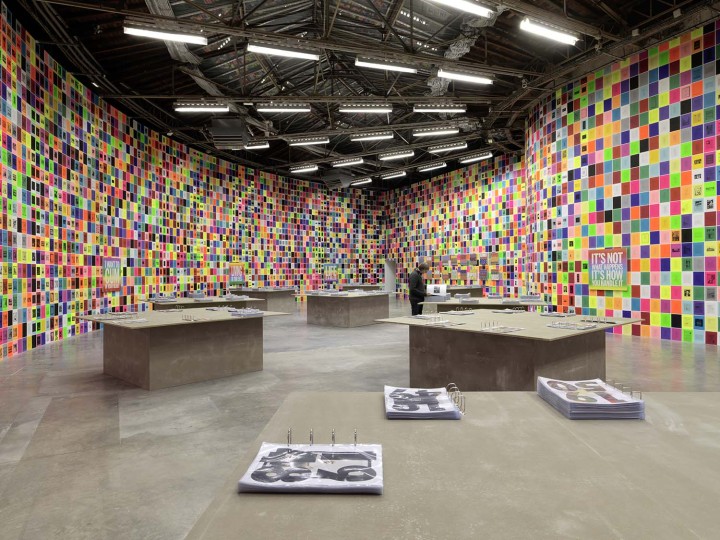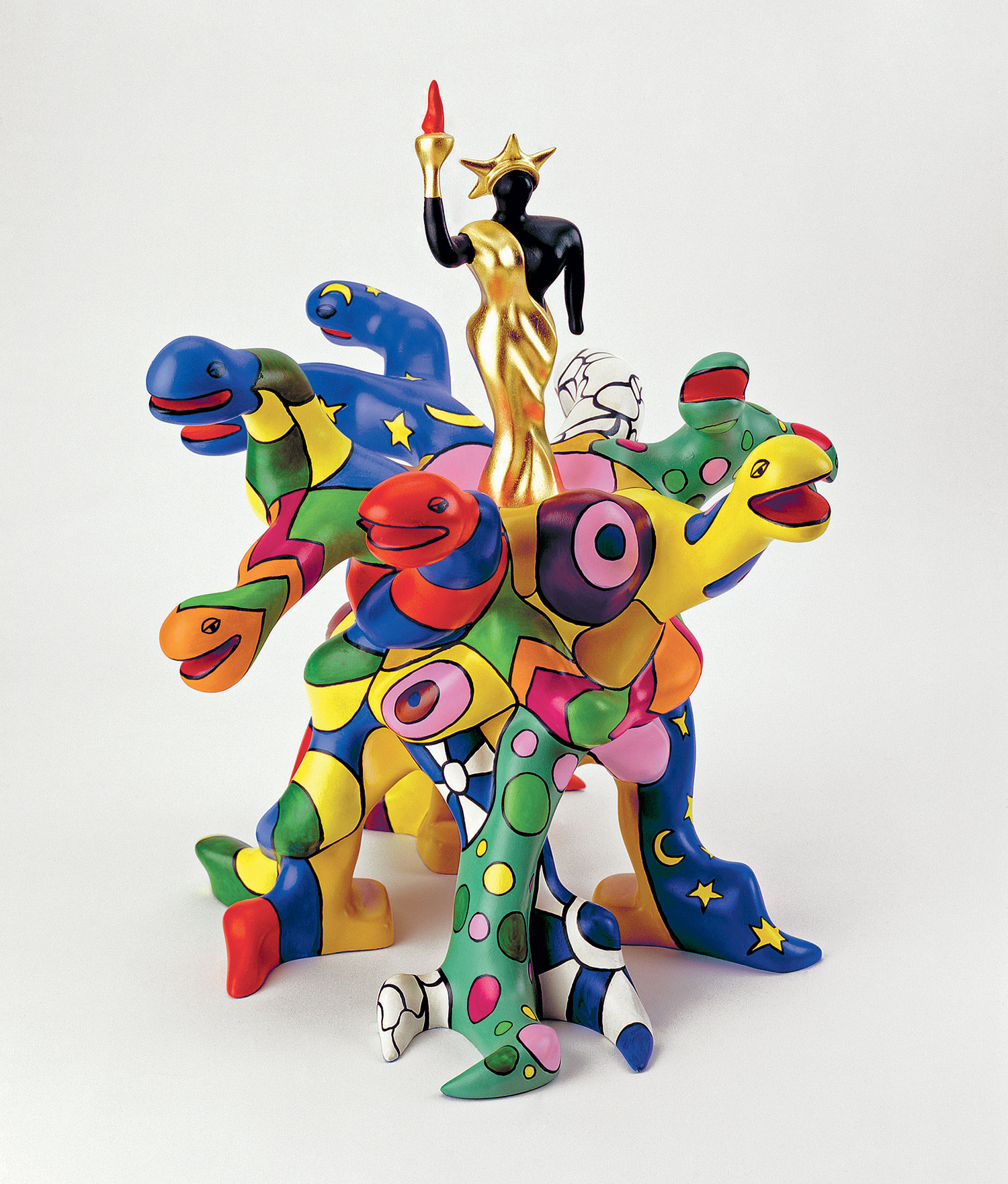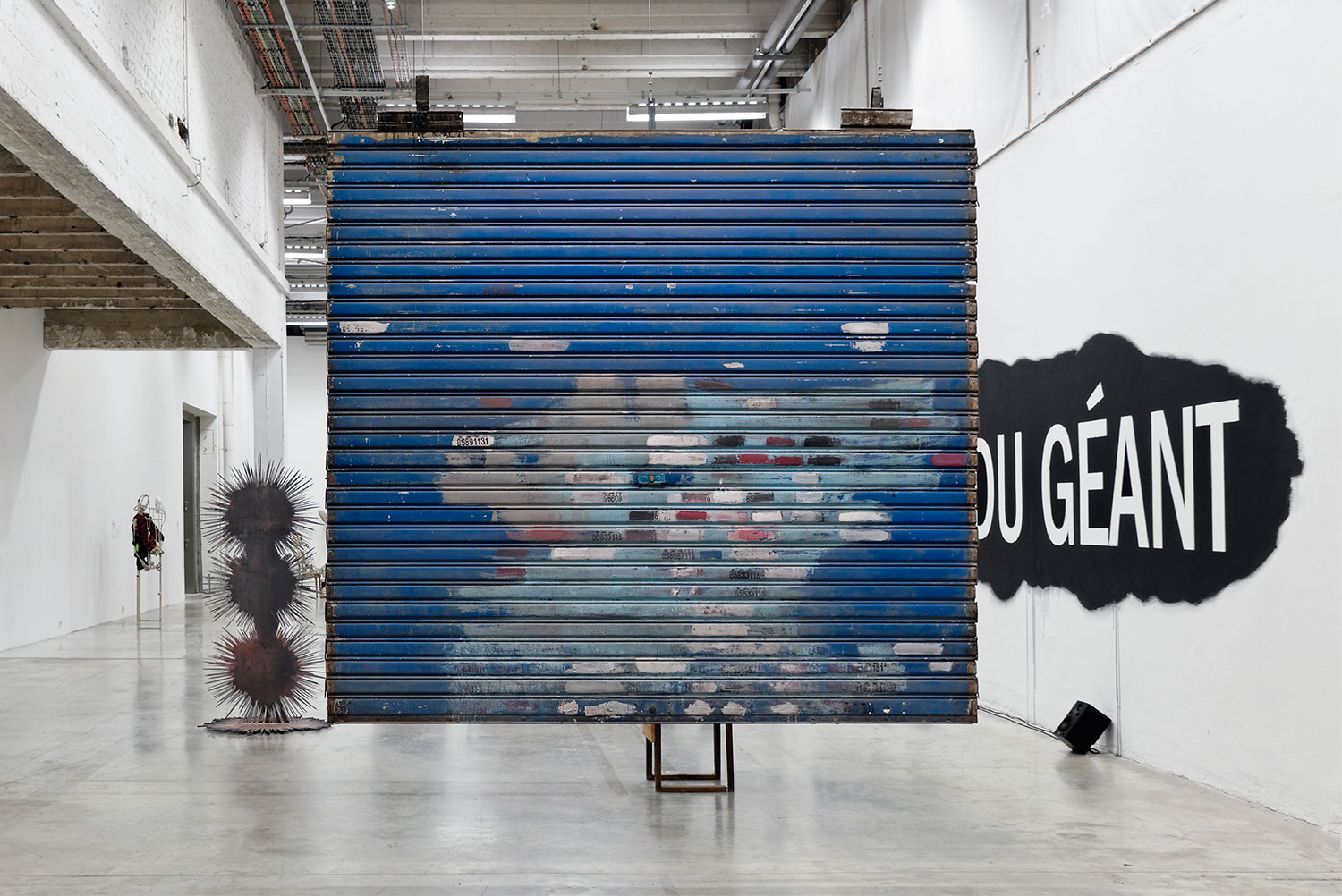John Giorno has had the good fortune of having great and illustrious lovers — they have photographed him, read his poems, painted his portrait. Then there is Ugo Rondinone, who has now carved out a space within the obvious untidyness of the Palais de Tokyo, to present what many are calling a love letter-as-exhibition to his partner of a decade.
Giorno’s first response comes through in a video installation by Rondinone, THANX 4 NOTHING (2015): a fourteen-minute, four-wall projection in black and white of Giorno reading from the titular poem, while standing barefoot under a single spotlight. It’s a funereal expulsion of thoughts on aging and sex, past lovers, friends and death, in which Giorno almost manages to transport the viewer out of the spectacle-fueled, media-hungry Palais and into something more complex, quiet and distressing.
Giorno’s harrowing self-reflections are violently thrust aside as one walks into the remaining rooms of the exhibition, which are part archive, part homage. The somber reality of love, the eschewal of nostalgia, and the sexuality present in his work are all subsumed by Rondinone’s neurotic desire to display and occupy as much of the content and space as possible. The enormous walls of the Palais are plastered in multicolored photocopies from Giorno’s archive, leaning in on the viewer like someone slightly too drunk aching for a kiss, breath spirited and heavy, and touch slightly too aggressive.
Elsewhere, iPads playing Giorno Poetry Systems (1967–1997) recordings lie perched atop slumped beanbags by Angela Bulloch. In an adjacent room, portraits of the artist by Mark Handforth, Judith Eisler, Verne Dawson and others are hung sparsely in subtle gravitation toward a single, imposing center: an MDF cottage by Rirkrit Tiravanija, in which viewers can enter and watch a virtual Giorno reciting his poems. There’s a certain facelessness to all this, a repetition that pushes Giorno into anonymity, like an original surrounded by a million clones. There’s an intimacy that feels emptied of origin for the sake of public consumption, yet one that under Rondinone’s caressing touch is disappointing to witness.







